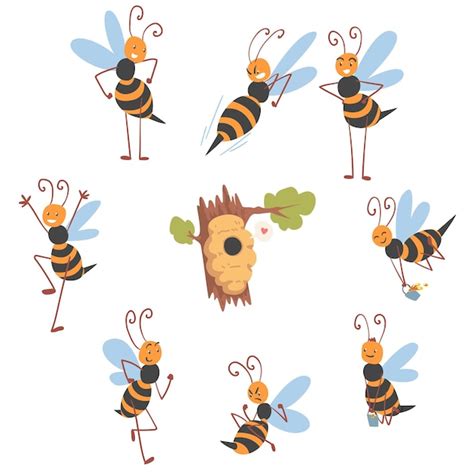|
Word Gems
exploring self-realization, sacred personhood, and full humanity
Soulmate, Myself:
Omega Point
|
Lovers in the afterlife will have the ability to change their outward forms, to present themselves to each other as they were at any earlier age.
|
return to "contents" page

a very important new concept
Elenchus. I was lying in bed, late at night, about 1 AM, thinking about us, what we might have to face when we cross over to Summerland.
Kairissi. At this stage of our lives, it’s the most pressing question. We know, one way or another, we’re going to be together, because we can feel the soul-bond, we know it’s real – what we don’t know is, will we be ready to be married right away, or will immaturity still dog us, for who knows how long.
E. So, I was thinking about all this. And I guess my mind was in “scan mode,” as I was mentally running through the testimonies of teachers who know something about Twin Soul love. Was there anything that I’d missed? Is there some word of encouragement, I wondered, that might help me in my “midnight confessions”?
K. Who is your “Father Confessor” to absolve?
E. I think it’s my “higher self” – the part of me linked to God. He kinda knows everything, but can’t be bought off, cajoled, or fooled.
K. Not the push-over type.
E. Not so much. And so, in that late night, I’m conducting a kind of impromptu “life review”, not just to see where I went wrong – I’ve been over that and over that – but, is there some good word for me, and for us, that might comfort a weary mind?
K. (silence)
E. I guess it came out as a sort of prayer. I guess I was asking. And, whatyaknow, in a flash instant it came to me. And it’s one of the most important items for Twin love in Summerland!
K. Wow, babe!
E. Funny thing is – I already knew about this, but I didn’t really know it. I mean, my mind was in “scan mode,” and, in the darkness of 1 AM, I’m mentally flipping through pages of teachings. And then I was given a gift of new insight into old material. Let me condense what happened. What I saw has been part of our collection of wisdom for many years, but I never really understood it.
K. This sounds like our little joke about the basement of the British Museum.

E. Yes, like that – artifacts stored away, to be uncrated years in the future.
K. Elenchus, I really want to know what you saw, and I’m sure our readers do, too.
E. I will explain the best I can, but it’s difficult. What I saw has a foundation in other ideas. Some of these are lengthy, and we can’t re-present a large number of pages here.
K. I think we should make bullet-points for the foundational ideas with links to that material.
E. Let’s do the bullet-points, and I’ll comment briefly on these prerequisites before getting into the new material.
|
* Spirit-Guide Margaret said that (while life in Summerland is wonderful) we will not even begin to experience the real joys of the afterlife until we enter into union with our Twin Soul. READ MORE
* Swedenborg is famous for his visions of Summerland. He said that “our heavenly delights are principally derived from” marital joys with one’s Twin Soul. He said that the happiest ones over there are the Twin Souls, and that they were easy to spot, in that, he could tell, they just enjoyed each other’s company so much, always mirthful and teasing, sort of like happy and carefree little children, the way they carry on when they play. READ MORE
* Spirit-Guide Abu said that Twins, if they choose to, can take on the outward form of children, for the pleasure of simulating certain aspects of their childhood. READ MORE
* Timothy Grey on the other side, friend of afterlife researcher Dr. August Goforth, said that we (and especially lovers) could play games of simulation, could even temporarily take on the bodies of animals, just for the fun of it -- squirrels, for example, chasing each other in the trees -- to see what it would be like to live that way. READ MORE
* Jurgen Ziewe, a 45-year veteran out-of-body traveler, has been visiting Summerland for decades. He reports that people over there are able to go to special worlds designed to heal grieving hearts. For example, one could simulate becoming a child again and re-enter a happy life once lived on a farm. Everything would be an authentic replicate of a lost era, down “the the finest detail.” READ MORE
* C.W. Leadbeater, via psychic abilities, also reports of worlds much as those described by Jurgen, Abu, and Grey. Worlds in which one might enjoy “the highest spiritual bliss of which he is capable [as constructed from one's own memories and desires; there, one] may actually live in a [private] world of his own without possibility of interruption and with the additional advantage of seeing all his ideas and their consequences fully worked out, passing in a sort of panorama before his eyes. [Just as a child on Earth plays] “make believe,” so it is [with these worlds where one] surrounds himself … with an illusory [situation] created by his own thoughts; [a world] exactly suited to him [because one's own desires serve as basis for the construction of this world].” READ MORE
|
K. Elenchus, many would say all this is marvelous and wonderful enough, we hardly know what to do with it – but, you say there’s more?
E. It’s not a secret. It’s been in the WG writings for many years, but I wonder if anyone noticed or understood what was being said. The testimony is by the psychic C.W. Leadbeater, just introduced above. Here’s what he presented, in his book from 1900:

The Astral Plane: Its Scenery, Inhabitants, and Phenomena (1900), by C.W. Leadbeater: “The astral region which I am to attempt to describe … has often been called the realm of illusion, not that it is itself any more illusory than the physical world [Earth], but because of the extreme unreliability of the impressions brought back from it by the untrained seer. This is to be accounted for mainly by … remarkable characteristics of [this particular] astral world; first, that many of its inhabitants have a marvelous power of changing their forms with Protean rapidity, and also of casting practically unlimited glamour over those with whom they choose to sport.”
K. I’m seeing the words, but what is he really saying?
E. We have difficulty understanding because
(1) this was written in 1900 when writing styles were quite formal and stilted, not very conversational;
(2) he uses common expressions, idioms, well known during the 1800s but Greek to us today;
(3) most people don’t know who Proteus was so his reference falls flat and tells us nothing;
(4) certain words, ordinary to anyone then, have shifted in meaning in the last 100+ years; for example, we think “sport” has to do with the Vikings’ game this Sunday.
K. We’d better unpack all this very carefully. Tell me about “glamour.”
|
from etymonline.com
glamour (n.)
1715, glamer, Scottish, "magic, enchantment" (especially in the phrase to cast the glamour), a variant of Scottish gramarye "magic, enchantment, spell," said to be an alteration of English grammar (q.v.) in a specialized use of that word's medieval sense of "any sort of scholarship, especially occult learning," the latter sense attested from c. 1500 in English but said to have been more common in Medieval Latin.
It was popularized in English by the writings of Sir Walter Scott (1771-1832). The sense of "magical beauty, alluring charm" is recorded by 1840. As that quality of attractiveness especially associated with Hollywood, high-fashion, celebrity, etc., by 1939.
Jamieson's 1825 supplement to his "Etymological Dictionary of the Scottish Language" has glamour-gift "the power of enchantment; metaphorically applied to female fascination." Jamieson's original edition (1808) looked to Old Norse for the source of the word. Zoëga's Old Icelandic dictionary has glám-sýni "illusion," probably from the same root as gleam [ie to dazzle].
|
E. Notice, there was a popular common phrase at the time “to cast the glamour.”
K. Today, we think of glamour as “Hollywood.”
E. It's in the ballpark, but the precise meaning was different then.
'cast the glamour' leads us to think of 'cast a spell'
E. It had a special connotation akin to casting a spell or bewitchment. While this phrase had roots in the occult, that’s not part of the common meaning in 1900 when they said “cast the glamour.” It meant, “she is so devastatingly beautiful, drop-dead gorgeous, it’s like having a spell cast upon you, if you’re not careful she will rob you of an ability to think, your brains will fall out, so fascinating and beguiling is she.”
K. I think we’re getting the picture about this goddess.
|
from etymonline.com
sport (v.)
c. 1400, sporten, "take pleasure, enjoy or amuse oneself," from Old French desporter, deporter "to divert, amuse, please, play; to seek amusement," etymologically "carry away" (the mind from serious matters), from des- "away" (see dis-) + porter "to carry," from Latin portare "to carry" (from PIE root *per- (2) "to lead, pass over"). Compare disport (v.), which is the older form.
The restricted sense of "amuse oneself by active exercise in open air or taking part in some game" is from late 15c. The meaning "display, show off, exhibit" is by 1712; specifically as "to wear" by 1778.
sport (n.)
early 15c., sporte, "pleasant pastime, activity that brings amusement; joking, foolery;" a shortening of disport "activity that offers amusement or relaxation; entertainment, fun" (c. 1300), also "a pastime or game; flirtation," also pleasure taken in such activity (late 14c.);
Other, lost senses of Middle English disport were "consolation, solace; a source of comfort." In 16c.-17c. it could mean "sexual intercourse, love-making."
disport (n.)
c. 1300, "activity that offers amusement, pleasure, or recreation," from Anglo-French disport, Old French desport, from disporter/desporter "divert, amuse" (see disport (v.)). From late 14c. as "a sport or game; the game of love, flirtation."
disport (v.)
late 14c., disporten, "to divert (from sadness or ennui), cheer, amuse gaily," from Anglo-French disporter "divert, amuse," Old French desporter "to seek amusement," literally "carry away" (the mind from serious matters).
|
E. For a long time, the basic idea of “sport” was simply that of amusing oneself.
K. But we immediately see there was a special variation of “sport,” a definition having to do with flirtation and sexual intercourse. These are the real games people want to play.
E. And “the game of love” was a meaning of “sport” since the 1400s.
K. As the British say, things are definitely “hotting up” now. What is Leadbeater really getting at?
|
from Wikipedia
Proteus
In Greek mythology, Proteus is an early prophetic sea god or god of rivers and oceanic bodies of water, one of several deities whom Homer calls the "Old Man of the Sea".
Some who ascribe a specific domain to Proteus call him the god of "elusive sea change", which suggests the changeable nature of the sea or the liquid quality of water. He can foretell the future, but, will change his shape to avoid doing so; he answers only to those who are capable of capturing him. From this feature of Proteus comes the adjective protean, meaning "versatile", "mutable", or "capable of assuming many forms".
According to Homer ... Menelaus relates to Telemachus that he had been becalmed here on his journey home from the Trojan War. He learned from Proteus's daughter Eidothea ("the very image of the Goddess"), that if he could capture her father, he could force him to reveal which of the gods he had offended and how he could propitiate them and return home. Proteus emerged from the sea to sleep among his colony of seals, but Menelaus was successful in holding him, though Proteus took the forms of a lion, a serpent, a leopard, a pig, even of water or a tree.
According to Virgil in the fourth Georgic, at one time the bees of Aristaeus, son of Apollo, all died of a disease. Aristaeus went to his mother, Cyrene, for help; she told him that Proteus could tell him how to prevent another such disaster, but would do so only if compelled. Aristaeus had to seize Proteus and hold him, no matter what he would change into.
|
K. Proteus couldn’t be caught; not easily. He’d change himself into animals or plants or even water to get away.
E. Notice Leadbeater’s emphasis. It’s not just the ability to change form but with “Protean rapidity.” Proteus was a god of the sea. Think of the mutability of waves, how fast they change shape.
K. I’m starting to catch a glimpse of what Leadbeater saw in the lives of Twins Souls in Summerland. But… it’s so radical… and so wonderful… I hardly dare verbalize it.
E. I’d like to share what I’ve seen, and then I’d like you to offer your perspective. First, let me say that this new aspect of Twin love reminds me of jazz music:
|
from various interent sources
Jazz
There is no single definition of “jazz.” The predominant characteristics seem to be:
Spontaneity
Improvisation
Creativity
Thrill of unpredictable energy
Individuality
Innovation
Boundless musical freedom
License to explore unexpected elements
Playing solos made up on the spot
Editor’s note: Despite jazz's focus on personal expression, some musicians also speak of a “collective harmony.” Further, some say, “at its core, jazz is freedom inside a structure.” This “freedom inside a structure” is what jazz means to me.
Let’s say the familiar “Silver Bells” tune is “jazzed.” This would mean, for example, that the core melody of the famous Christmas melody would not be lost in a surfeit of individual expression, but, around this inner structure, the musicians would overlay with numerous flights of solo unexpected element.

Coming to mind is a beehive, the core structure of a colony’s life. As the bees buzz around in all manner of endeavor, no matter how complex their “waggle dances,” they always find their way home to the apiary.
|
E. There is something about lovers laughing together.

E. I’m tempted to say, is there anything more pleasurable in the universe?
K. Even the vaunted sexual intercourse can’t compare. A couple can have sex, but it can easily become a mechanical thing, something empty. But it’s not possible to wholeheartedly laugh with a lover in a formulaic way.

E. Swedenborg seems adamant about this.
K. The joy and laughter he witnessed Twins sharing prompted some very unequivocal statements. He saw lovers’ happiness as the foundation of the entire concept of “heaven.”
E. But let’s talk about Leadbeater.
K. Why don’t you paraphrase and expand upon what he said:
|
The Astral Plane: Its Scenery, Inhabitants, and Phenomena (1900), by C.W. Leadbeater: “The astral region which I am to attempt to describe … has often been called the realm of illusion, not that it is itself any more illusory than the physical world [Earth], but because of the extreme unreliability of the impressions brought back from it by the untrained seer. This is to be accounted for mainly by … remarkable characteristics of [this particular] astral world; first, that many of its inhabitants have a marvelous power of changing their forms with Protean rapidity, and also of casting practically unlimited glamour over those with whom they choose to sport.”
Expanded paraphrase:
There is a region of the next life which is most marvelous. It seems to be a little beyond Summerland. It could be said that this new world is a world of illusion, but let us not be confused by this statement: the Earth-world is also a world of illusion, in that these are not worlds of ultimate reality. There’s much more to come.
However, one of the reasons I refer to this new world as ‘illusion’ has to do with the reports that might originate there. What I mean is, someone sending a report from that world, a newcomer, an ‘untrained seer,’ won’t know what he’s looking at, and his reports might easily be filled with error and mistaken perception.
The source of the error will stem from the fact that the ‘locals,’ the regular inhabitants of that new world, possess a marvelous ability. They have the power to change their forms just as the mythical Proteus did! moreover, this change of outward form is extremely rapid, as quick as a wave on the ocean takes a new shape.
But what I’ve said so far isn’t the half of it. You might ask, why are they so interested in changing forms? Well, I’ll tell you – it’s part of a great game that these people engage in.
But I must stop because I’ve already given an entirely wrong impression. These games are not like people getting together to play softball, musical chairs, or a chess tournament. And those taking part in these games are not random people off the street – but lovers, Twin Souls, romantic mates.
Allow me to interrupt myself once again to inject that this special world has been seen and reported on by a number of seers; that said, these reports tend to differ because each emphasizes a different aspect. For example, a message coming through via the mediumship of Emily French offered this:
The spheres [worlds]! No tongue can describe them. There are thousands... millions... countless in number... all rounded into complete worlds, and all the habitations of those who cherish the special idea which rules the sphere... There are spheres of every mental light, thought, and knowledge; spheres of special grades of intellect and wisdom. In all and each [person] is a special need of happiness... There are spheres of [romantic] love, where tender natures cling to one another until they are drawn by higher, broader aspirations to [wider] planes of thought...
Let us speak plainly. Not all but many of these special worlds – including the world which I was able to view – are worlds for lovers. There, they engage in as much physical intimacy as they like. These worlds are particularly designed for those grieving hearts who lost a mate or lover during the difficult Earth mission.
What I saw adds to the message of Emily French. I was able to see that these lovers have the ability to change their outward forms. And they make a grand game or ‘sport’ of it. Why is this so pleasurable for them? Well, let’s think about this: I saw lovers ‘casting practically unlimited glamour’ over their sex-partner in the game. What does this mean exactly? It would mean whatever they decide it to mean. It might mean this, as she teases and laughs with him:
I know what you like. You have all these images of me from the past, from when I was young to older, and I know there’s a sadness in your heart that you did not have opportunity to make love to me back then, part of you feels that you missed out on enjoying me, and that you can never make up for that loss now – well, what if I made it possible for you to love me as I was during our ‘lost years’? and, even better for you, I now have the ability to present myself without any blemish at all from that early time, I will have a perfect body, for you to enjoy, no matter what age you choose me to be.
|
K. Elenchus… is this what you want… for us… from me?
E. It would be hard not to want it… all of those lost years are still a nightmare…
K. (softly I would love to give you this gift.
E. I look forward to it… however, I’ll tell you what happened to me the next day or so after understanding Leadbeater’s vision. I was, of course, very excited, and I started thinking about the many “versions” of you that might be experienced. Talk about “kid in a candy shop.”

K. (smiling)
E. But, after a day or so, I began to realize something else… I saw that there’s something I want even more than a thousand versions of your beautiful body.
K. But, Darling Dear, what else could you want after unlimited iterations of me?
E. I offered commentary on “jazz.” It helped me to see something. The “unlimited iterations” are the spontaneous solos and improvisations. That’s all well and good, but the jazz I like best has a core structure that’s never out of sight and always returned to.
K. You’re being cryptic, Darling.
E. As I thought about those “unlimited iterations” I was surprised to discover, within myself, a certain drifting toward loneliness.
K. Which, if I might say, is an unexpected reaction from the man who, two days before, had just won the cosmic lottery for unlimited sex.
E. Yeah, that is funny. And I’m not saying I’m giving that up, but… the new revelation morphed into a thought-experiment, prompting a “whispering” deep inside… informing… that you are more to me than unlimited sex, much more than infinite outward form.
K. (softly) Darling Dear… do you now know what you really want?
E. Yes… I do… I just want you.
Postscript
K. Darling Dearest… look again at that message via Emily French… it says that lovers will stay in those sex-worlds until they realize something… I think, with the help of your thought-experiment, you’ve already figured out, before the time, that there’s something even better than unlimited sex with thousands of perfect bodies. What would you say is the “core structure of jazz”?
E. It’s real relationship… a “union of spirits”… a sacred meeting of the minds… just one mind… yours.

|
"We trespassed, field to field; you, glad of my arms each time a fence challenged us; I, always held you longer than it took to help you over." Walter Benton, This Is My Beloved
|
K. Elenchus... you and I... were only 19 fence-posts away.
Editor’s irrelevant concluding comment: This article found its unexpected inspirational origin, and began taking shape with note-gathering, during the very early hours of my 74th birthday.
|







